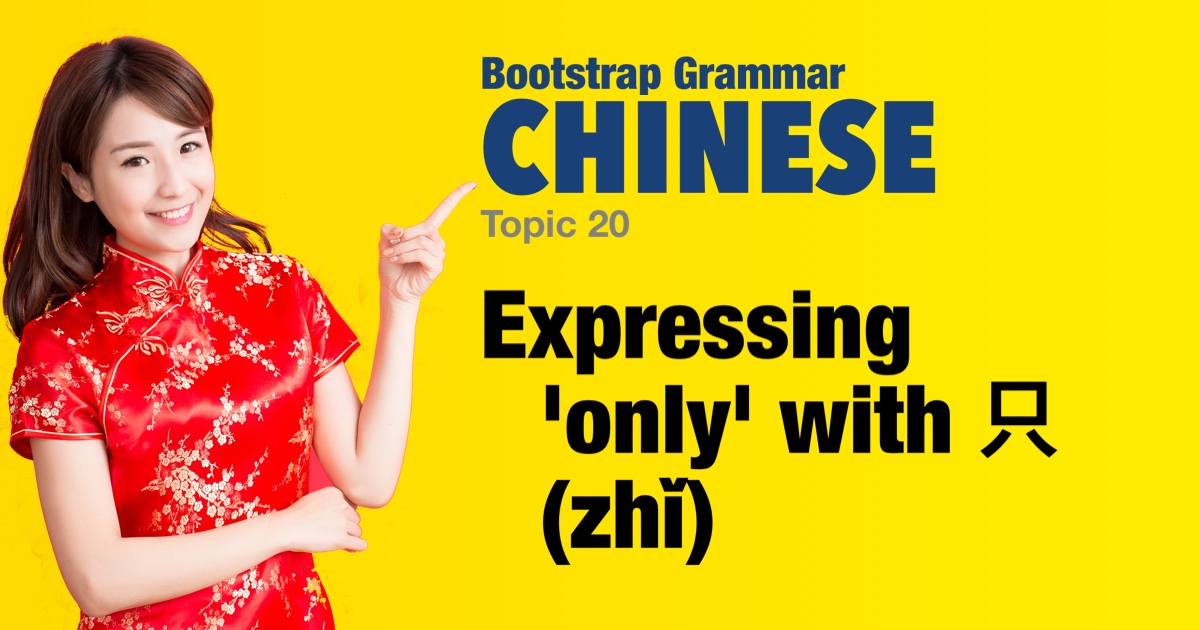Chinese grammar - Expressing 'only' with 只 (zhǐ) |
|||
|
|||
In Chinese, the adverb 只 (zhǐ) is an easy way to say 'only'. Like most adverbs, it comes before the verb. |
| Examples: | |
|
我只有一本书。
wǒ zhí yǒu yì běn shū. I only have one book. |
|
|
你只有三个选择。
nǐ zhí yǒu sān gè xuǎnzé. You only have three choices.
|
|
|
你只吃水果吗?
nǐ zhǐ chī shuíguǒ ma? Do you only eat fruit?
|
|
|
我只吃苹果。
wǒ zhǐ chī píngguǒ. I only eat apples. |
|
|
他只吃蔬菜。
tā zhǐ chī shūcài. He only eats vegetables.
|
|
|
你只看动画片吗?
nǐ zhǐ kàn dònghuàpiàn ma? Do you only watch cartoons?
|
|
|
他不看电影,他只看书。
tā bú kàn diànyǐng,#tā zhǐ kàn shū. He doesn't watch movies, he only reads books.
|
|
|
他只有一个好朋友吗?
tā zhí yǒu yí gè hǎo péngyou ma? Does he only have one good friend?
|
|
|
我不是老师,我只是学生。
wǒ bú shì lǎoshī,#wǒ zhǐ shì xuéshēng. I am not a teacher, I am only a student. |
|
|
这只是一个玩笑。
zhè zhǐ shì yí gè wánxiào. This is only a joke.
|
|
|
你只是孩子。
nǐ zhǐ shì háizi. You are only a child. |
|
 |
|



